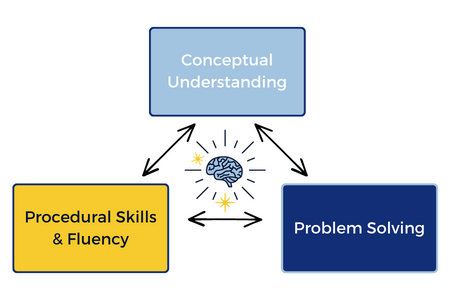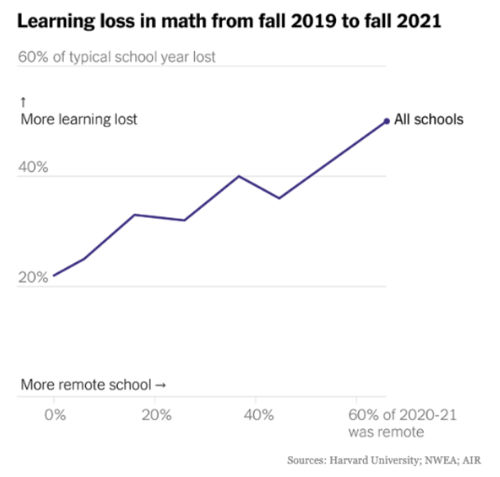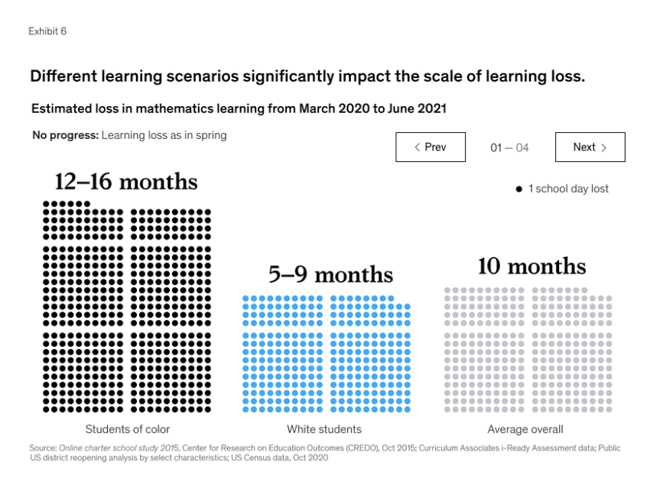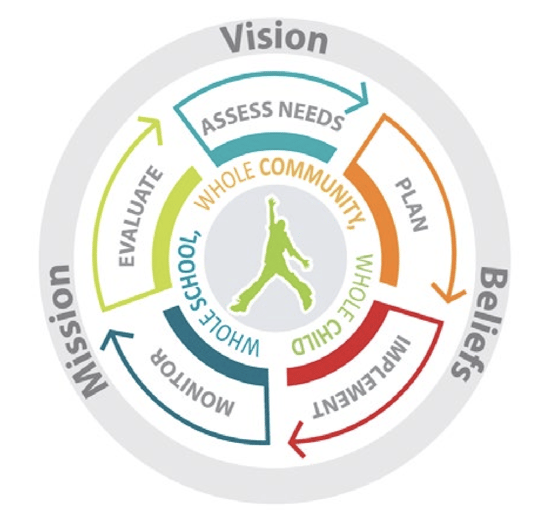Our Methodology
Conceptual Understanding
Conceptual understanding is creating a robust framework representing the numerous interwoven relationships between ideas, patterns, and procedures. Students should be able to take the skills they’ve learned through repetition and make them transferable to different situations.
Mastering in any discipline requires more than rote memorization and traditional methods. Allowing students to explain their rationale and maintaining inquiry-based instruction is vital to long-term success.

A study conducted by a team of researchers at Harvard’s Center for Education Policy Research found that students who spent the majority of the 2020-21 academic year in person lost about 20 percent of a typical school year’s math learning during the study’s two-year window with a majority of the loss likely stemming from the students spending so much time remote during spring of 2020. However, students who stayed home for most of 2020-21 fared much worse. On average, they lost the equivalent of about 50 percent of a typical school year’s math learning during the study’s window.


Changes in the learning environment are even more challenging to overcome in school districts that lack particular resources. Mckinsey estimates that U.S. students lost an average of five to nine months of learning in mathematics. But among students of color, that figure increases to six months to a full year.
There are four pillars to achieving equity:
- High-Quality Pedagogy
- Social-Emotional Learning
- Family Partnership
- Cultural Competence
Educational Equity
Equality in education is achieved when students are all treated the same and have access to similar resources, whereas equity is achieved when all students receive the resources they need to graduate prepared for success after high school. The simplest example of equity in education can be found in teachers who can adapt their teaching style to match a student’s learning capabilities.
Accelerated Learning
To successfully combat learning loss, students must be presented with more than just traditional remediation strategies. Academic acceleration includes a wide variety of educational and instructional strategies educators use to advance the learning progress of all students regardless of where they are in their learning trajectory.
Acceleration focuses on preparing students for success with upcoming new learning and lays the foundation for continued academic growth.
Remediation delays opportunities to learn new content until students have mastered all skills and concepts, leaving them further and further behind their grade-level peers.
We look to do more than support educators, many of whom already use their designated instruction time to prepare students for standardized testing and the following grade level. We PARTNER with them. Schools are supplied with informative reports and can see growth in particular standards.
Impact Your Students Today
Empower your students to achieve the success they’re capable of and match them with the right tutor - inside or outside of the classroom!
